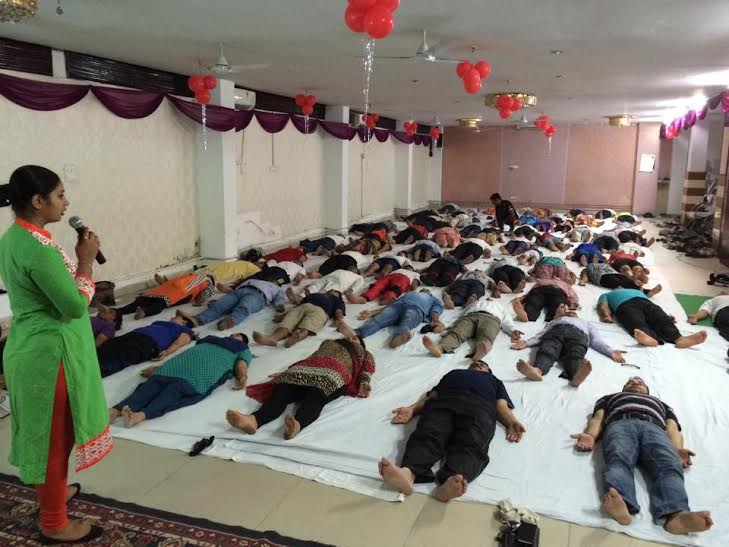
nIDRA YOGA
Yog nidra, as per Upanishad, is a state of consciousness between being awake and sleeping
stage. The focus is on the awareness of “inner self”. It is also known as yogic deep breathing.
It has been mentioned in ancient texts that Yog nidra awakens the state of Pragya or the
purest form of wisdom with all the senses withdrawn and only the sense of hearing remains
intact. It releases vital energy in the body and wards off anxiety and stress almost
immediately if done under proper guidance.
The difference between meditation and Yog nidra is that the former focuses on centralizing
your attention to one thing (object or instance) while Yog Nidra is a state of Pratyahar or
“withdrawal of senses” where you are not concentrating on anything and just listening to
the instructions. It’s a lucid state of dream, one is only (or mainly) cognizant of the dream
environment, and has little or no awareness of one's actual environment. This is one of the
deepest possible states of relaxation while still maintaining full consciousness.
In our day to day lives, we sleep (nidra) regularly but do not focus on sorting out the mental
blocks and burdens we carry and we simply pass them over days after days, eventually
succumbing under stress. Yog nidra is a complete joyful and transformative experience and
has been proven to aid in curing psychosomatic illnesses that occur due to stress as a
predisposing factor like-Migraine, Diabetes, Hypertension, Skin diseases etc.
While many of the muscular problems can be tackled with yoga alone, the emotional
problems become deep routed and many scientific researches have proven that stressful
and happy states both releases different kind of neurotransmitters in our bodies, simply
stating to as “happy and sad hormones”. Certainly the human body is way much beyond the
physical self of what we see, a lot goes inside that needs to balanced, channelized and
focused to get most out of life.
Yog Nidra should be practised under guidance as it is simply not a technique of relaxation
but also being free from muscular, mental and emotional tensions.
Give Yog nidra with IHS a try and you will understand why it has been stated time and again
that a session of 30 minutes of Yog Nidra is equivalent to 3 hours of deep sleep!

